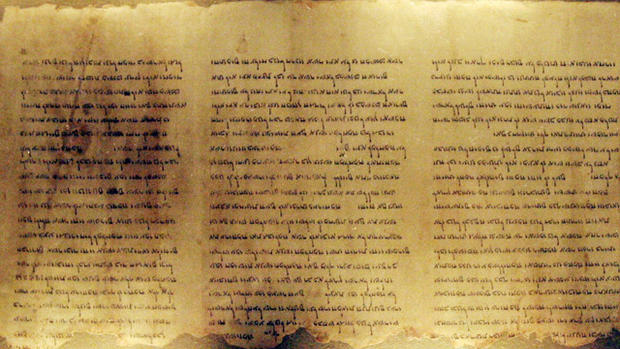Centuries-old Dead Sea Scrolls rolled out online
JERUSALEM - Two thousand years after they were written and decades after they were found in desert caves, some of the world-famous Dead Sea Scrolls went online for the first time on Monday in a project launched by Israel's national museum and web giant Google.
The appearance of five of the most important Dead Sea Scrolls on the Internet is part of a broader attempt by the custodians of the celebrated manuscripts — who were once criticized for allowing them to be monopolized by small circles of scholars — to make them available to anyone with a computer.
The scrolls include the biblical Book of Isaiah, the manuscript known as the Temple Scroll, and three others. Surfers can search high-resolution images of the scrolls for specific passages, zoom in and out, and translate verses into English.
The originals are kept in a secured vault in a Jerusalem building constructed specifically to house the scrolls. Access requires at least three different keys, a magnetic card and a secret code.
The five scrolls are among those purchased by Israeli researchers between 1947 and 1967 from antiquities dealers, having first been found by Bedouin shepherds in the Juddvean Desert.
The scrolls, considered by many to be the most significant archaeological find of the 20th century, are thought to have been written or collected by an ascetic Jewish sect that fled Jerusalem for the desert 2,000 years ago and settled at Qumran, on the banks of the Dead Sea. The hundreds of manuscripts that survived, partially or in full, in caves near the site, have shed light on the development of the Hebrew Bible and the origins of Christianity.
The most complete scrolls are held by the Israel Museum, with more pieces and smaller fragments found in other institutions and private collections. Tens of thousands of fragments from 900 Dead Sea manuscripts are held by the Israel Antiquities Authority, which has begun its own project to put them online in conjunction with Google. That project, aimed chiefly at scholars, is set to be complete by 2016, at which point nearly all of the scrolls will be available on the Internet.
